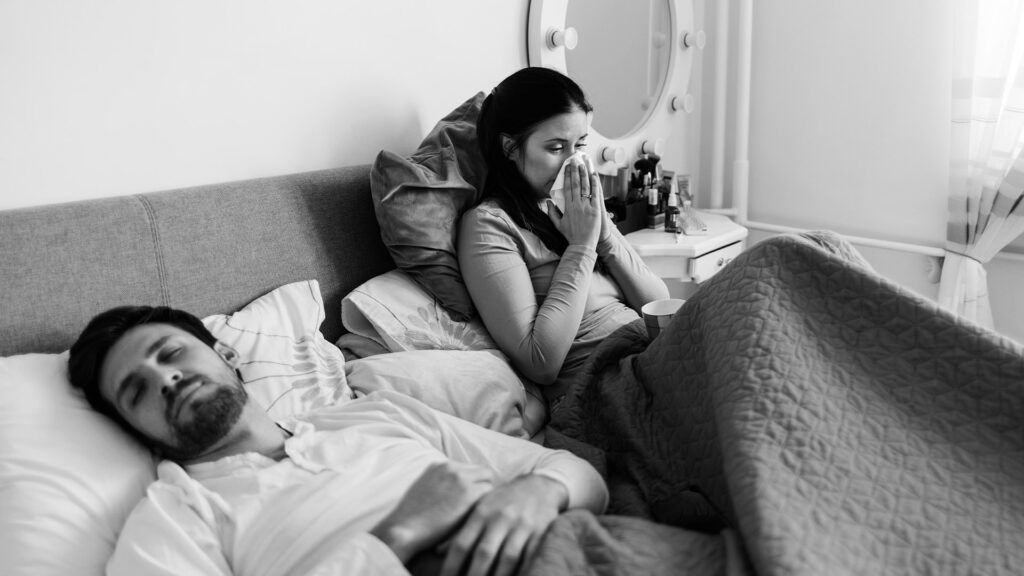In some cases, mononucleosis, or mono, can be a sexually transmitted infection (STI). However, this is not the most common way that it spreads. Usually, the cause is contact with saliva.
People who share eating utensils, toothbrushes, or drinking glasses
However, it is possible to get the virus that causes mono from other bodily fluids, such as semen or blood.
Keep reading to learn how mono can be an STI, how it can spread, how long it is contagious, and whether mono is the same as herpes.

Mono can be an STI in some cases. Although the
When people refer to “herpes,” they often mean genital herpes. There are
In contrast, the virus that
The confusion comes from the fact that EBV belongs to the same family of viruses as HSV-1 and HSV-2, known collectively as herpesviruses. This large group of viruses includes eight that can affect humans, including:
- varicella-zoster virus, which causes chickenpox and shingles
- cytomegalovirus, a
common virus that usually does not cause symptoms unless a person has weakened immunity - human herpesvirus 6, which causes roseola infantum and pityriasis rosea
The
- another person’s toothbrush, lip balm, or inhaler
- unwashed drinking glasses or cutlery
- shared cigarettes
- a toy that a child has drooled on
Mono is contagious for about
Mono and its symptoms usually go away in around
The following symptoms may manifest
- extreme tiredness
- sore throat
- swollen lymph nodes in the armpit and neck
- rash
- fever
- headache
- body aches
If mono symptoms persist for a long time, keep getting worse, or a person gets better and then worse again, they should contact a doctor for advice.
In rare cases, EBV can lead to serious illness. People should seek immediate help by calling 911 or going to an emergency room if alarming symptoms develop, such as:
- tenderness in the left upper abdomen and pain in the left shoulder, which
may indicate splenic rupture - difficulty breathing
- a stiff neck
- a rash that does not disappear under a glass
- vomiting
- confusion
- vision changes
- seizures
- paralysis
- difficulty staying awake
- loss of consciousness
Below are answers to commonly asked questions about mono:
Can you kiss when you have mono?
Kissing while having mono can spread EBV. To avoid transmitting EBV to others, people should refrain from this until there is no longer a risk of contagion.
Does mono mean my partner is cheating?
No, not necessarily. Contact with saliva is the
How can you get mono without kissing?
Sharing drinking glasses, eating utensils, or personal care products that touch the lips or mouth could all spread mono. Saliva that contains the virus that causes mono can be in many places around the home, school, or workplace.
Mono can be an STI, as it may transmit via semen. However, the
A person getting mono does not necessarily mean they have been unfaithful to a partner. Mono is also not the same as genital herpes.
Mono may be contagious for around
